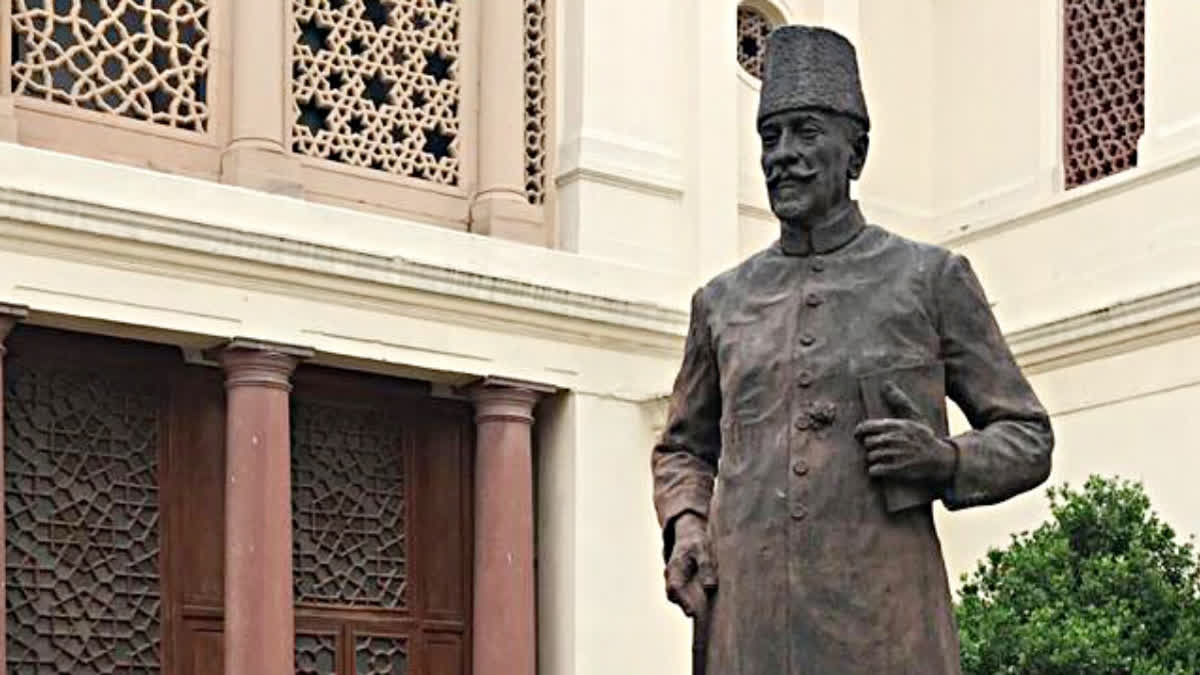New Delhi: National Education Day is celebrated annually on November 11 to honour the birth anniversary of Maulana Abul Kalam Azad, a prominent visionary, freedom fighter, scholar, and the first Education Minister of Independent India.
In 2008, the Ministry of Human Resource Development (now known as the Ministry of Education) designated November 11 as National Education Day to honour Maulana Abul Kalam Azad on his birth anniversary.
Education is included in the concurrent list of the Constitution, which means that both the Central Government and State Governments share responsibility for it. Most schools and higher education institutions operate under the jurisdiction of their respective states and union territories. The Ministry of Education has emphasized the importance of improving the educational status of all students in the country, particularly those from rural and underprivileged backgrounds.
In India, various schemes, projects, and programmes run by the ministry have been aligned with the National Education Policy (NEP) 2020. NEP 2020 aims to ensure that no student loses the opportunity to learn and excel because of the circumstances of birth or background. It has taken into account the concerns of the Socio Economically Disadvantaged Groups (SEDGs) which inter-alia includes geographical identities such as students from villages, small towns, aspirational districts and other categories. The ministry said that this policy aims to bridge the social category gaps in access, participation, and learning outcomes.
National Education Policy (NEP) 2020:
National Education Policy 2020 has been announced in the year 2020 which proposes various reforms in school education as well as higher education including technical education. Various action points and activities for implementation at school education level as well as higher education level are mentioned in it.
Samagra Shiksha:
Samagra Shiksha programme for the school education sector, extending from preschool to Class 12, was formulated in 2017 to improve the effectiveness of equal opportunities for schooling. The government has approved the continuation of the revised Samagra Shiksha scheme for a period of five years from 2021-22 to 2025-26, the Ministry of Education stated.
ULLAS:
A centrally sponsored innovative scheme called Nav Bharat Saksharta Karyakram or New India Literacy Programme (NILP), known as ULLAS-Understanding of Lifelong Learning for All in Society. It aligns with the recommendations of the NEP 2020 and aims to empower those adults aged 15 years and above from all backgrounds who could not get schooling and mainstream them with society to be able to contribute more to the growth story of the country, the ministry mentioned.
Vidyanjali:
The school volunteer initiative is an online portal that acts as a facilitator by connecting volunteers directly to the schools. The aim is to bridge the knowledge, skill, human resource and infrastructure gap in the schools by tapping the potential available in civil society. During the year up to January 1, 2024, 684147 schools were on board and 446898 volunteers had registered on the Vidyanjali portal. With volunteers’ active participation, the program has successfully managed to impact 6077832 students across the nation, as per the ministry information.



